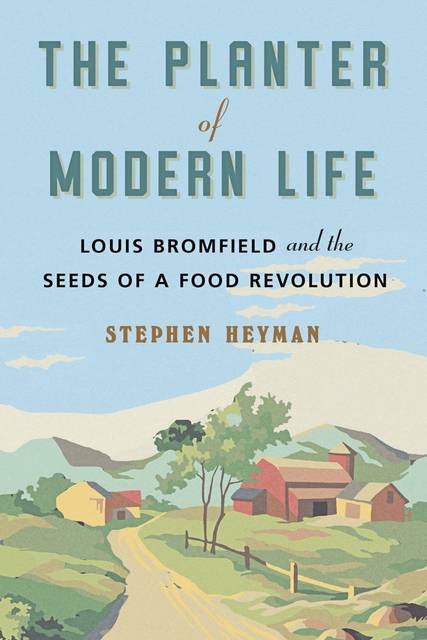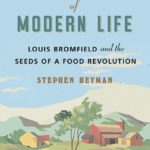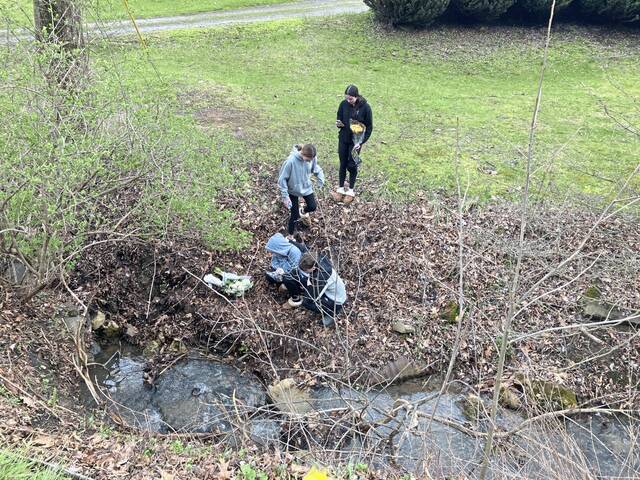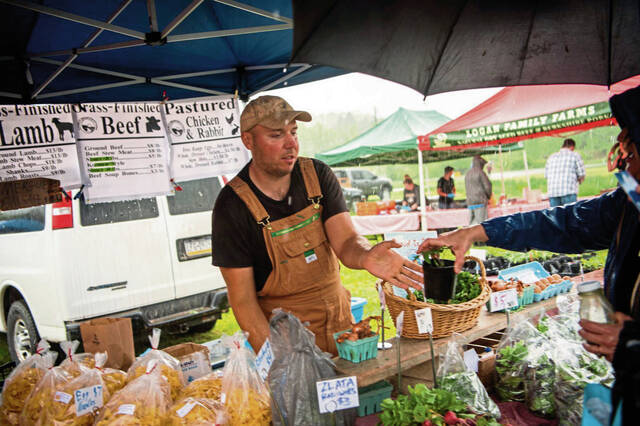For a man who wrote so many books — 34 in 33 years — not many books have been written about Louis Bromfield.
Pittsburgh author Stephen Heyman is remedying that oversight with his new book, “The Planter of Modern Life: Louis Bromfield and the Seeds of a Food Revolution” (W.W. Norton, $26.95), which releases on April 14. It details Bromfield’s transition from a literary figure to Ohio farmer whose utopian vision inspired the modern organic movement.
“This is a guy who’s had a tremendous amount of press and was written about extensively in his time, but then just vanished,” Heyman said in a recent interview.
Heyman’s discovery of Bromfield started in Westmoreland County in 2016. It eventually took him to France, Ohio State University and rural Richland County, Ohio.
A former editor at The New York Times and now a freelance writer, Heyman, 35, of Pittsburgh’s East End, first heard Bromfield’s name while working on a Times travel story about the Laurel Highlands. In the course of working on the story, he met the Unity Township sheep farmers John and Sukey Jamison. Their Jamison Farm, which has been using organic and grass-fed methods for decades, is known nationally for supplying fine restaurants.
“I was talking to John about what got him started as a farmer, and he mentioned Bromfield kind of glancingly. I wrote it down in my notebook,” he said. “I Googled him later and fell down this crazy rabbit hole and became transfixed by his story.”
Born in 1896 in Mansfield, Ohio, Bromfield was one of the most celebrated authors of the 1920s and ’30s. He won the Pulitzer Prize in 1927 for his third novel, “Early Autumn.”
An ambulance driver in France during World War I, Bromfield returned to that country with his young family in 1925 and lived there until the outbreak of World War II — a part of the “Lost Generation” of American expatriate writers and artists who lived in and around Paris between the wars.
Bromfield settled in Senlis, France, where he learned from local peasant farmers and developed an acclaimed garden. Upon his return to Ohio in 1938, he bought 600 badly-eroded acres near his hometown of Mansfield. He turned it into a thriving cooperative farm called Malabar. It was there that he became an early champion of sustainable agriculture and organic farming methods that are commonplace today, Heyman said.
Bromfield pioneered the use of cover crops, no-till farming, contour plowing, crop rotation, large-scale composting and other soil-saving measures that are now the foundation of sustainable agriculture, Heyman said.
“He didn’t invent these things so much as popularize the use of them on a large scale,” he said. “He was an evangelist … spreading the word about things that would become important through his charisma and his writing.”
Although a writer by vocation, Bromfield was a farmer and a conservationist at heart.
“He would make agriculture into literature in a way that none of his forebears or contemporaries had. He was the first major writer to give himself over completely to the problems and possibilities of agriculture, to get down into the dirt of it, to become a modern farmer,” Heyman writes. “Farming became for him a calling, a platform, almost a religion. He wanted not just to farm for himself but to change the idea of what the farmer was or could be. His celebrity, his creativity, his money — all of it would eventually go into the compost pile.”
Heyman’s scheduled April 16 Pittsburgh Arts & Lectures event to present the book has been postponed.











